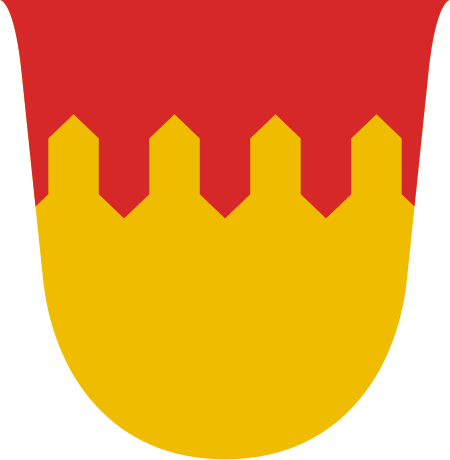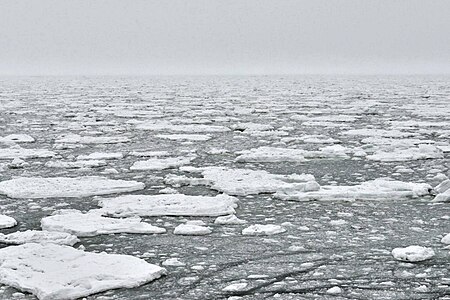Thích Quảng Độ
| |||||||||||||||||||||||||
Read other articles:

Pour les articles homonymes, voir Bonald (homonymie). Louis de BonaldPortrait par Julien Léopold Boilly.FonctionsPrésidentConseil général de l'Aveyron (d)1825-1826Pair de France23 décembre 1823 - juillet 1830PrésidentConseil général de l'Aveyron (d)1821-1823Fauteuil 30 de l'Académie française21 mars 1816 - 23 novembre 1840Jean-Jacques-Régis de CambacérèsJacques-François AncelotDéputé de l'Aveyron22 août 1815 - 23 décembre 1823Maire de Millau6 août 1785 - 20 juillet 1790Titre d…

لمعانٍ أخرى، طالع جيمس بروكس (توضيح). جيمس بروكس معلومات شخصية الميلاد 9 مايو 1940 (العمر 84 سنة)بروكلين، نيويورك، الولايات المتحدة مواطنة الولايات المتحدة عضو في نقابة الكتاب الأمريكية الغربية عدد الأولاد 4 الحياة العملية المدرسة الأم جامعة نيويورك المهنة �…

Questa voce sull'argomento centri abitati della Finlandia è solo un abbozzo. Contribuisci a migliorarla secondo le convenzioni di Wikipedia. ValkeakoskicomuneValkeakosken kaupunki LocalizzazioneStato Finlandia Regione Pirkanmaa DistrettoPirkanmaa meridionale AmministrazioneSindacoMarkku Auvinen Data di istituzione1923 (città dal 1963) TerritorioCoordinate61°16′00″N 24°01′50″E / 61.266667°N 24.030556°E61.266667; 24.030556 (Valkeakoski)Coordinate: 61�…

此條目需要补充更多来源。 (2021年7月4日)请协助補充多方面可靠来源以改善这篇条目,无法查证的内容可能會因為异议提出而被移除。致使用者:请搜索一下条目的标题(来源搜索:美国众议院 — 网页、新闻、书籍、学术、图像),以检查网络上是否存在该主题的更多可靠来源(判定指引)。 美國眾議院 United States House of Representatives第118届美国国会众议院徽章 众议院旗帜…

Ajla TomljanovićTomljanović, 2020Kebangsaan Kroasia (Des 2009–Jan 2018) Australia (Feb 2018–sekarang)Tempat tinggalBoca Raton, Florida, A.S.Lahir07 Mei 1993 (umur 31)Zagreb, KroasiaTinggi180 m (590 ft 7 in)Memulai proDesember 2009Tipe pemainRight-handed (two-handed backhand)Total hadiahUS$ 4,664,573TunggalRekor (M–K)347–267 (56.51%)Gelar0Peringkat tertinggiNo. 33 (31 Oktober 2022)Peringkat saat iniNo. 33 (31 Oktober 2022)Hasil terbaik di Grand Slam (tungga…

本條目存在以下問題,請協助改善本條目或在討論頁針對議題發表看法。 此條目需要編修,以確保文法、用詞、语气、格式、標點等使用恰当。 (2013年8月6日)請按照校對指引,幫助编辑這個條目。(幫助、討論) 此條目剧情、虛構用語或人物介紹过长过细,需清理无关故事主轴的细节、用語和角色介紹。 (2020年10月6日)劇情、用語和人物介紹都只是用於了解故事主軸,輔助讀�…

Bonnie FranklinFranklin, 1976LahirBonnie Gail Franklin(1944-01-06)6 Januari 1944Santa Monica, California, ASMeninggal1 Maret 2013(2013-03-01) (umur 69)Los Angeles, CaliforniaAlmamaterUniversity of California, Los AngelesPekerjaanAktris, sutradaraTahun aktif1952–2012Suami/istriRonald Sossi (m. 1967; c. 1970)Marvin Minoff (m. 1980; meninggal 2009) Bonnie Gail Franklin (6 Januari 1944…

جامعة بوكوني Università Bocconi معلومات التأسيس 1902 (منذ 122 سنة) النوع جامعة خاصة الموقع الجغرافي إحداثيات 45°27′01″N 9°11′23″E / 45.450277777778°N 9.1897222222222°E / 45.450277777778; 9.1897222222222 المدينة ميلانو الرمز البريدي 20136 MILANO المكان لومبارديا البلد إيطاليا رقم الهاتف 3434 5836 02 (39+) ا�…

RX J1856.5-3754[1] Photographie en rayons X. Données d'observation(époque J2000.0) Ascension droite 18h 56m 35s Déclinaison −37° 54′ 36″ Constellation Couronne australe Magnitude apparente ~25,6 Localisation dans la constellation : Couronne australe Astrométrie Distance Caractéristiques physiques Masse 0,9 M☉ Rayon 14 km2,02 × 10−5 R☉ Température 430 000 K Âge 1 million a modifier RX J1856.5-3754 est une étoile à ne…

1980 film by William Peter Blatty The Ninth ConfigurationTheatrical release posterDirected byWilliam Peter BlattyScreenplay byWilliam Peter BlattyBased onThe Ninth Configurationby William Peter BlattyProduced byWilliam Peter BlattyStarring Stacy Keach Scott Wilson Jason Miller Ed Flanders Neville Brand George DiCenzo Moses Gunn CinematographyGerry FisherEdited by Battle Davis Tony de Zarraga Peter Lee-Thompson Roberto Silvi Music byBarry De VorzonProductioncompanyThe Ninth Configuration CompanyD…

Nation that has great political, social, and economic influence on a global scale Great powers are recognized in several international structures, including the United Nations Security Council.[1] Part of the Politics seriesBasic forms of government List of forms of government List of countries by system of government Source of power Democracy (rule by many) Demarchy Direct Liberal Representative Social Socialist Others Oligarchy (rule by few) Anocracy Aristocracy Gerontocracy Kleptocrac…

Arquata Scriviacomune Arquata Scrivia – Veduta LocalizzazioneStato Italia Regione Piemonte Provincia Alessandria AmministrazioneSindacoAlberto Basso (lista civica Viviamo Arquata) dal 6-6-2016 (2º mandato dal 4-10-2021) TerritorioCoordinate44°41′33″N 8°52′54″E44°41′33″N, 8°52′54″E (Arquata Scrivia) Altitudine248 m s.l.m. Superficie29,24 km² Abitanti6 273[2] (31-1-2024) Densità214,53 ab./km² FrazioniRigoroso,…

Church and former archaeological site in Lima, Peru Church of Saint AnneIglesia de Santa AnaReligionAffiliationCatholicGoverning bodyArchdiocese of LimaLocationLocationPlaza Italia, LimaArchitectureStyleNeoclassicalCompleted1665 The Church of Saint Anne (Spanish: Iglesia de Santa Ana) is a Catholic church that forms part of the historic centre of Lima, Peru. It is located in Barrios Altos, next to Italy Square, and is one of two main candidates for the location of Rímac, the Indian oracle that …

Кубок Хопмана — ежегодный традиционный выставочный теннисный турнир, задуманный, организованный и впервые проведённый Полом Макнами и Чарли Фанкаттом, проходивший в Перте, Западная Австралия, на рубеже декабря и января. Содержание 1 Формат 2 Место проведения 3 Гарри Хо�…

Sri Lankan military officer (1929–2024) This article includes a list of general references, but it lacks sufficient corresponding inline citations. Please help to improve this article by introducing more precise citations. (August 2019) (Learn how and when to remove this message) Admiral DeshamanyaBasil GunasekaraBorn(1929-05-07)7 May 1929[1]Katana, CeylonDied17 February 2024 (aged 94)AllegianceSri LankaService/branch Sri Lanka NavyYears of service1950–1979RankAdmiralService num…

Russian Union of Evangelical Christians-BaptistsРоссийский союз евангельских христиан-баптистовClassificationEvangelical ChristianityTheologyGeneral BaptistAssociationsBaptist World AllianceEuropean Baptist FederationEuro-Asian Federation of Evangelical Christians-Baptists UnionsHeadquartersMoscow, RussiaOrigin1944Congregations1,674Members68,166SeminariesMoscow Baptist Theological SeminaryOfficial websitebaptist.org.ru The Russian Union of Evangelical C…

يفتقر محتوى هذه المقالة إلى الاستشهاد بمصادر. فضلاً، ساهم في تطوير هذه المقالة من خلال إضافة مصادر موثوق بها. أي معلومات غير موثقة يمكن التشكيك بها وإزالتها. (ديسمبر 2018) ترافكو جروبترافكوالشعارمعلومات عامةالبلد مصر التأسيس 1979النوع خاصةالمقر الرئيسي مدينة 6 أكتوبر، مصرمو…

Inuit seal hunter in a qajaq, armed with a harpoon Photo from on board the MS Hanseatic, 2014-08-27: Polar ice limit (Record position 85°40,7818’ N, 135°38,8735‘ E) Inuit navigation techniques are those navigation skills used for thousands of years by the Inuit, a group of culturally similar indigenous peoples who inhabit the Arctic and subarctic regions of Greenland, Canada, and Alaska (United States). On the tundra, Inuit hunters would travel for long distances when hunting for game, and…

Piero PatrussiInformazioni personaliArbitro di Calcio SezioneRavenna Attività nazionale AnniCampionatoRuolo 1975-19831977-1982Serie BSerie AArbitroArbitro Premi AnnoPremio 1978Fischietto d'argento Piero Patrussi (Arezzo, 21 maggio 1942) è un ex arbitro di calcio italiano. Indice 1 Carriera sportiva 2 Note 3 Voci correlate 4 Collegamenti esterni Carriera sportiva Fu inserito nell'organico arbitrale della CAN per la Serie A e B tra il 1975 e il 1983. La prima gara diretta in Serie B fu Pescara-R…

Pour les articles homonymes, voir Tirésias (homonymie). Relief d'Ulysse consultant Tiresias. IVe quart du Ier siècle apr. J.-C. Marbre. Musée du Louvre. Dans la mythologie grecque, Tirésias (en grec ancien Τειρεσίας / Teiresías) est un devin aveugle[1] de Thèbes. Fils d’Évérès (de), lui-même fils du Sparte Oudaïos (it), et de la nymphe Chariclo, Tirésias a trois filles : Manto, Historis et Daphné. Il est, avec Calchas, l'un des deux devins les plus cé…
